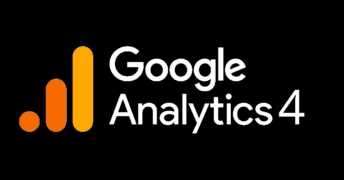Backlink Analysis Using ChatGPT

Backlink analysis is a critical component of any successful SEO strategy. Understanding the links that point to your website and the quality of those links can help you identify areas for improvement and optimize your overall link profile. While traditional backlink analysis tools rely on algorithms and data processing, ChatGPT, a language model trained by OpenAI, offers a unique approach to backlink analysis that leverages natural language processing and machine learning. In this article, we’ll explore how you can use ChatGPT to do backlink analysis on webpages and improve your SEO results.
Understanding Backlinks
Before we dive into backlink analysis using ChatGPT, it’s essential to understand what backlinks are and why they matter for SEO. Backlinks are links that point to your website from other websites. They are often referred to as “inbound links” or “incoming links.” When a website links to your site, it’s essentially giving your site a vote of confidence, indicating that your content is valuable and relevant. Search engines like Google consider backlinks to be a critical ranking factor because they see them as an endorsement of your site’s quality and authority.
However, not all backlinks are created equal. Search engines use complex algorithms to evaluate the quality of backlinks and determine how much weight to give them when calculating search rankings. Factors that influence the quality of a backlink include:
- The authority of the linking site
- The relevance of the linking page to your site’s content
- The anchor text used in the link
- The number of other links on the linking page
- The context of the link (e.g., is it in the main content or in a sidebar?)
With that in mind, let’s explore how you can use ChatGPT to analyze backlinks and improve your SEO.
Using ChatGPT for Backlink Analysis
ChatGPT is a language model that can understand natural language and generate text based on that understanding. This makes it an ideal tool for analyzing the content of web pages and identifying patterns and trends in backlinks. Here’s how you can use ChatGPT for backlink analysis:
Step 1: Gather Backlink Data
The first step in backlink analysis is to gather data on the backlinks that point to your site. There are many tools available for this, including Ahrefs, Majestic, and Moz. You can also use Google Search Console to see a list of websites that link to your site. Once you have a list of backlinks, you’ll need to compile that data into a format that ChatGPT can understand.
Step 2: Input Data into ChatGPT
Once you have collected the backlink data, it is time to input it into ChatGPT. This can be done by uploading a CSV file or by manually entering the data into the platform.
To upload a CSV file, simply select the “Upload” button and select the file from your computer. ChatGPT will automatically analyze the data and generate a report with insights and recommendations.
If you prefer to enter the data manually, you can select the “Manual Entry” option and input the information for each backlink individually. This may be more time-consuming, but it allows for greater control over the data and can be helpful for smaller data sets.
Once the data is inputted, ChatGPT will analyze the backlinks and generate a report with insights and recommendations for improving your SEO strategy.
Step 3: Analyze the Backlink Report
The backlink report generated by ChatGPT will provide valuable insights into the quality and relevance of your backlinks. Here are some of the key metrics to look for in the report:
- Domain Authority (DA) – This metric measures the overall authority of a domain based on the quality and quantity of backlinks pointing to it. The higher the DA, the more valuable the backlink is likely to be.
- Page Authority (PA) – Similar to DA, PA measures the authority of a specific page on a domain. This can be a useful metric for identifying individual pages that are particularly valuable for backlinks.
- Anchor Text – The anchor text is the text that is used to link to your website. The report will show the most common anchor text used in your backlinks, which can help you identify opportunities to improve your anchor text strategy.
- Referring Domains – The number of unique domains that are linking to your website is an important metric for evaluating the overall quality and diversity of your backlink profile.
- Linking Pages – The report will also show the specific pages on each domain that are linking to your website. This can help you identify which pages are most valuable for backlinks and which pages may be less relevant or of lower quality.
- Spam Score – ChatGPT can also analyze the backlinks for signs of spam or low-quality links. The report will provide a spam score for each backlink, which can help you identify links that may be harming your SEO efforts.
By analyzing these metrics and using the insights provided by ChatGPT, you can develop a more effective backlink strategy and improve your search rankings over time.
Conclusion
In conclusion, backlink analysis is an essential part of any effective SEO strategy. By understanding the quality and quantity of the backlinks pointing to your website, you can identify areas for improvement and develop a plan to increase your search engine rankings.
ChatGPT is a powerful tool that can help you conduct backlink analysis more efficiently and effectively. By using its natural language processing capabilities, you can input data and receive actionable insights on the backlinks pointing to your website or your competitors’ websites.
To get the most out of ChatGPT, it’s important to ensure that you input accurate and comprehensive data. This includes not only the URLs and anchor text of the backlinks, but also information about the authority and relevance of the linking domains.
Once you have the results of your backlink analysis, it’s important to use that information to inform your SEO strategy. This may involve identifying and targeting high-quality, relevant backlinks, disavowing low-quality or spammy links, or developing a content strategy that attracts natural backlinks over time.
In short, backlink analysis is an ongoing process that requires a combination of technical expertise and strategic thinking. By using ChatGPT to streamline the data analysis process, you can save time and focus on developing effective strategies to improve your website’s search engine rankings and drive more traffic to your site.







